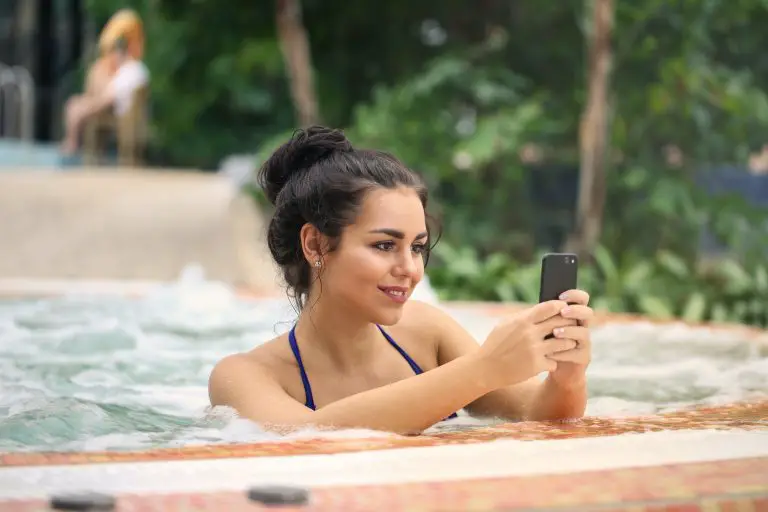The need for sunscreen before and after getting in contact with pool water has been pretty apparent in recent years. It not only provides your skin with sun protection, but it also helps with pigmentation.
If you are a pool lover, you should definitely consider sunscreen to be your personal shield against harmful UV rays. Furthermore, in order to protect your skin against tanning and heat burns or rashes, it is essential that you safeguard yourself by applying a good quality sunscreen that meets all the necessary factors.
Stay with us as we will give you a simple purchasing guide where it will get simpler for you to pick the best sunscreen for pool water.
Factors to Consider
Given below are a few terms related to sunscreen that you should definitely consider while choosing the best sunscreen for pool water.
Water Resistant and Waterproof
Water resistance indicates that the sunscreen will continue to work for 40-80 minutes even after getting in touch with water. Waterproof, on the other hand, means that the sunscreen’s effectiveness will remain unaffected by water.
However, because all sunscreens are impacted by water, the current FDA standards prohibit companies from claiming their sunscreens as waterproof. Once a person is exposed to water, the sunscreen can protect his/her skin from sunlight only for a short period (25-40 minutes) of time.
Non-comedogenic
When a product is labeled as non-comedogenic, it indicates that it is made with components that are less likely to clog pores and cause breakouts, making it suitable for acne-prone skin.
However, even a non-comedogenic sunscreen can trigger breakouts. Therefore, if you have acne-prone skin, always conduct a patch test before starting with sunscreen or any new skin product.
Here’s how you can do so.
Hypoallergenic
The term “hypoallergenic” refers to a claim made by a manufacturer or a brand that their sunscreen consists of ingredients that are less likely to cause allergic reactions.
While it’s beneficial to use products that claim to be non-comedogenic and hypoallergenic, you should still double-check the contents and not depend simply on the label.
PA+
PA+ is a rating system that determines how effective a sunscreen is when it comes to protecting your skin against UVA radiation. It goes from very low to very high. In pool water, the effect of UV rays is higher and thus, a sunscreen with PA+++ will be sufficient to offer excellent protection.
UV Rays
There are two different kinds of sun rays, and each of them causes prominent damage to our skin.
| Type | Damage caused |
| UVA | Premature aging, age spots, skin wrinkling |
| UVB | Skin burning |
A broad-spectrum sunscreen protects your skin from both UVA and UVB rays. The SPF (sun protection factor) rating standard is used for UVB, whereas the PA rating is used for UVA and is measured in plus signs.
SPF- Why is It So Important?

The ability of a sunscreen to prevent ultraviolet (UVB) radiation, which causes sunburns, is measured in SPF. The SPF rating is a measure of how long it would take you to get sunburned if you are using sunscreen. If you use a higher SPF, it will take longer for your skin to get sunburned.
Fun Fact- A sunscreen with SPF 30 or higher can block about 97 percent of UVB rays!
Keep in Mind
When using sunscreen, there are a few things that one should always keep in mind.
Always Check the Expiry Date
As per FDA standards, sunscreens don’t last for more than 3 years. Any sunscreen older than that isn’t likely to keep your skin protected from the sun.
If you ever come across a sunscreen bottle around your house, always check if it’s still effective to use. If you are not able to identify the expiration date on the packaging, it is advised to replace it.
Shake Well Before Use
When sunscreen is kept at rest for a long period of time, the active ingredients present in it tend to settle in the bottom. Therefore, it is always advised to shake your sunscreen bottle so that all the ingredients are properly distributed throughout the sunscreen.
Apply Evenly
For best results, it is essential to apply sunscreen to every part of your skin that is exposed to the sun while you are in the pool.
One should apply sunscreen half an hour before they go for a swim. For sunscreens and lotions, the rule is to take about 1 ounce (one shot glass) product to cover the entire body.
Using only a small amount of sunscreen will not give you enough protection, and you might end up having dark skin patches.
Reapply
Sunscreens tend to lose their effectiveness after some time, and it’s even faster when you are swimming under sunlight. Thus, it is vital to reapply sunscreen after every 2 hours to continue protecting your skin from getting heat burns and pigmentation.
Sunscreen Recommendations

| Item Name | Specifications | Buying Link |
| Neutrogena Ultra Sheer Beach Defense Sunscreen | Oil-free PABA-free SPF 70 Broad-spectrum protection | Click here |
| Sun Bum Original Scent Sunscreen Lotion | Vegan Broad-spectrum protection Contains Vitamin ESPF 30Perfect for sensitive skin | Click here |
| Banana Boat Sport Ultra Sunscreen | Lightweight formula Water and sweat-resistant for up to 80 minutesReef friendly SPF 15 | Click here |
| EltaMD UV Sport Sunscreen Lotion | Non-greasyContains zinc oxide formula Broad spectrum SPF 50 | Click here |
Conclusion
A sunscreen is a must buy if you are someone who stays out in the sun for a longer period of time. You can keep your skin healthy and youthful by simply wearing sunscreen before and after getting in contact with water. By doing so, you can also save a lot of your money on pigmentation and skin treatments.
We hope you were able to understand the basic terms related to sunscreen and choose the one according to your preference.
Now you can enjoy your pool party without caring about the sun!

